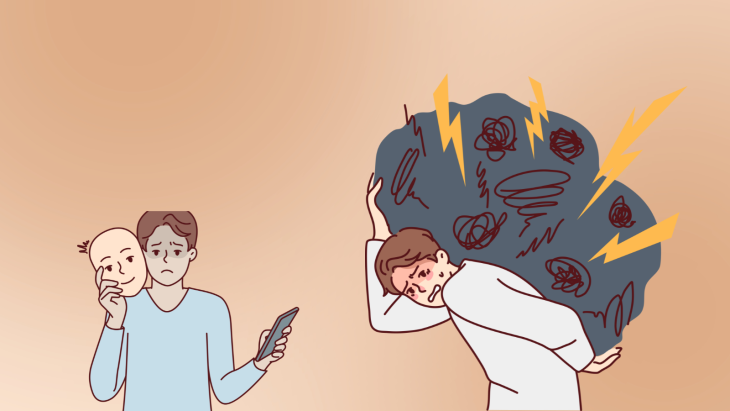Recent Posts
- I broke up with my partner, but now I am having doubts. Did I do it out of the right reasons or was I just being fearful?
- My Quick Temper Pushes People Away. What Do I Do To Manage My Anger?
- How does noise affect my mental health?
- I want to be a better problem solver. What is a step by step approach?
- Escapism. When is it healthy? When is it damaging?
Most Popular
The Dark Side Of Positivity: How Toxic Positivity Can Harm Your Mental Health?

In a world filled with challenges and uncertainties, the pursuit of positivity is often championed as a remedy for a multitude of problems. The idea of maintaining a positive outlook, finding silver linings, and looking on the bright side of life is undoubtedly valuable. Positivity is often considered a valuable trait, a source of motivation, and a means of navigating life's challenges with resilience. However, like any concept, positivity also has its shadows. The rise of what is known as "toxic positivity" has brought to light the potential harms that excessive and insincere optimism can have on one's mental health. While promoting a positive outlook is generally beneficial, it is crucial to recognize the dark side of positivity and how it can inadvertently lead to emotional suppression, invalidation of feelings, and unrealistic pressure to always be happy.
Invalidation of Feelings
The essence of toxic positivity lies in it denying the validity of human emotions. When someone expresses their struggles or distress, being met with responses like "everything happens for a reason" or "look on the bright side" can invalidate their feelings. Such invalidation can make individuals feel unheard, misunderstood, or guilty for experiencing anything other than joy. This not only hinders healthy emotional expression but also strains interpersonal relationships. When people feel unable to share their true emotions, they might withdraw from seeking support altogether, leading to a sense of isolation and further impacting their mental well-being.
Emotional Suppression and Denial
Toxic positivity encourages individuals to ignore or suppress their genuine emotions, particularly the negative ones. This denial of authentic feelings can have detrimental effects on mental health. When individuals are constantly urged to "just stay positive" or "look on the bright side," they might internalize the belief that experiencing sadness, anger, or frustration is somehow wrong or abnormal. This emotional suppression can lead to a disconnection from one's true self, resulting in feelings of confusion, isolation, and even depression. Suppressing emotions rather than addressing them only serves as a temporary fix, ultimately exacerbating the underlying issues.
Neglecting Genuine Problem-Solving
Toxic positivity often oversimplifies complex life challenges. Encouraging someone to "just think positive" when facing genuine problems can undermine their ability to seek effective solutions. In the face of adversity, rational problem-solving strategies are needed, not the mere suppression of emotions. By avoiding realistic assessments of challenges, individuals can find themselves ill-equipped to navigate life's difficulties.
Pressure to Always Appear Happy
The societal pressure to radiate happiness constantly can be suffocating. This pressure can lead individuals to put on a façade, concealing their true feelings behind a mask of false positivity. This not only disconnects individuals from their authentic selves but also prevents them from seeking genuine support when needed. The fear of being judged or perceived as weak for experiencing anything other than positivity can exacerbate feelings of isolation.
Promoting Authentic Positivity
Genuine positivity should encompass the entirety of the human experience, acknowledging both the highs and lows. It should encourage self-compassion and the acceptance of emotions without judgment. To promote authentic positivity, society needs to foster a culture that validates a wide range of emotions and encourages open conversations about mental health.
In conclusion, while positivity has its merits, the phenomenon of toxic positivity highlights its potential dark side. Emotional suppression, invalidation of feelings, unrealistic pressure, and neglect of problem-solving are just a few of the harmful consequences that can arise from an excessive emphasis on maintaining a facade of perpetual happiness. The path to genuine mental well-being involves acknowledging the complexity of emotions, validating one's experiences, and fostering a balanced perspective that embraces both the ups and downs of life. By doing so, individuals can navigate life's challenges with resilience, authenticity, and true emotional health.
#MentalHealth #ToxicPositivity #EmotionalWellBeing #AuthenticPositivity #Mindfulness







Comments